- Home
- Daphne Du Maurier
The Rebecca Notebook Page 7
The Rebecca Notebook Read online
Page 7
From then on I knew that strangers, people we should never know, never speak to, were in some curious way gratified when he passed by. The applause, the clapping of hands, the little knot of men and women, mostly women, waiting outside the stage door when we left the theatre to go home after a matinee, was all part of the same thing. Because Gerald—Daddy—had pleased them by pretending to be someone else, like Raffles leaping out of the grandfather clock in the last act, he also pleased them by going into a restaurant and having lunch. And the strange thing was that it made them feel important, not him. He didn’t care. And somehow, to a child of six or seven, this was tremendously important. If Gerald had smirked back, or thrown them a glance over his shoulder—those two in the restaurant—or in any way shown himself aware… my idol would have crashed.
This cool disregard on the part of the well-known towards the pointer, the starer, was not, I think, peculiar to Gerald, but was characteristic of his fellow stars as well, half a century and more ago. They were not concerned about their image. I suspect that it is different today. With rare exceptions a public figure who does not wave, grin, exchange jokes with his admirers and continually show himself conscious of his fans would be accused of having a swollen head. The fact that Gerald ignored nudges and whispers in the street or in restaurants did not mean that he despised the crowds who came to applaud him in the theatre, or indeed the many fans who wrote to him or waited outside the stage door, autograph book in hand. Letters were answered promptly, though I have no recollection of who did the secretarial work before my aunt Sybil—Billy, my mother’s sister—took it on around 1919. Hands were shaken, autographs written, and all with a good grace, after the matinee, in that dark passage between Wyndham’s and what was then the New Theatre; then to the car drawn up at the front of the house, with Dan—or was it Martin?—throwing open the door, and so back home for an early dinner at a quarter to seven, then twenty minutes’ shut-eye before the evening performance. Eight performances a week, bed never before midnight or later, but first supper—eggs and bacon or sausages—cooked by my mother, who had waited up for him in her dressing gown and now listened to the gossip of his day.
Stage, film and TV stars nowadays have marriages that come apart with the first row. An absence for a few weeks on tour or on location is asking for trouble. Somebody’s eye wanders, is caught, and the curious modern custom of telling all to the innocent partner so as to appease personal guilt is followed through to its inevitable conclusion, and the innocent partner, pride outraged, sues for a divorce. Everyone marries again. Perhaps it will be second or third time lucky.
Gerald, who had learnt the facts of life as a young actor from Mrs Patrick Campbell and others, fell in love with my mother, Muriel Beaumont, when they were acting together in Barrie’s The Admirable Crichton at the Duke of York’s Theatre in 1902. She was very pretty, rather naïve, had a will of her own and adored him. Adoration was mutual, and continued unchanging until his death thirty-one years after their marriage in 1903. How fully my mother was aware of his wandering eye I shall never know. Perhaps she closed her own, realising, with the wisdom of her particular generation, that he would always place her first. Not a marriage of convenience, but a marriage of love and understanding. Twice I saw her really roused, with a high colour and stamping foot. The first occasion was when she opened her bill from Fortnum & Mason and saw, in the middle of a list of items she had ordered, a large case of tea that had been sent round, on Gerald’s instructions, to the apartment of his current leading lady. Let him order goods on the side if he must, she told him, but not put them down to his wife.
The second occasion was more serious. Driving into London from Hampstead in her own small car, she noticed, with astonishment, Gerald’s Sunbeam parked outside a terrace house on the fringe of St John’s Wood. The house was inhabited by a young actress who had a small part in his current production. My mother—Mo, as she was always called—drove on to town, whether to shop or to visit friends I don’t know, but on the return journey, a few hours later, she saw that the Sunbeam was still there. Crisis threatened. Dinner before the theatre that evening was an ordeal. I know, because I was there. What passed between my father and my mother in the way of accusation, denial, acknowledgement, contrition, I shall never know, except for the quick whisper in my ear from Gerald on his way to the theatre, ‘Mummy’s so angry with me, I don’t know what to do.’ How old was I? Nineteen, twenty? I don’t remember; but I felt then as if he were my brother, or indeed my son. The father-daughter relationship had entered a deeper phase.
Ten years or so previously the relationship had been more personal, more emotional. If Gerald’s most popular successes to date—and I am now speaking of 1917—had been chiefly those of what we should now call the cops and robbers variety, the thrill of the chase, it took J. M. Barrie to draw the finest acting out of the matinee idol of the day. In Dear Brutus, surely Barrie’s best play, the least sentimental, the most perceptive, Gerald took the part of a jaded, spoilt, successful painter, at odds with his wife and with the world. The title—taken from Cassius in Julius Caesar, ‘The fault, dear Brutus, is not in our stars, But in ourselves, that we are underlings’—gives the theme of the play: a group of people, the painter amongst them, as they wander in an enchanted wood, are shown, by their host magician, what they would have done with their lives had they been given a second chance. Gerald, as Will Dearth, is still an artist, but unsuccessful, with no possessions except a daughter in her teens, whom he loves, and who loves him. The transformation of the jaded, successful man in the first act to the happy-go-lucky father in the second saw Gerald at his peak. He was himself, yes, but also every man who carries in his soul a seed of discontent, of wishing that his world was other than it had turned out to be. There was nostalgia, too—memories of his own artist father, who had known success but had remained his generous, unspoilt self.
The third act brought realisation. The second chance was nothing but a dream. He was Will Dearth, who had conquered the artistic world, but he had no daughter. ‘When I was in the wood with Margaret,’ Gerald said, ‘she… she… Margaret…’ and then he lifted his head and looked about him, at the walls of the house enclosing him, no wood, no child, and it was as though he shrank into himself, and the expression in his eyes, bewildered, lost, anguished, was something that his real daughter, a child of ten, has never forgotten, can never forget. Filial identification? Possibly. But the hushed audience identified also, and this is surely the whole meaning of communication between the actor on the stage and those who sit and watch him; they have a bond in common, they see themselves.
The natural school of acting that Gerald founded had much to answer for in later years. Mumbled speaking, sloppy gestures, actors with small talent believing that, without years of training and hard thought, they could walk an easy road to success. It was not so. Either they achieved a temporary popularity, or they fell by the way. Only those with real genius knew how to develop the technique and build upon it, and I do not think it is fancy on my part, or filial pride, when I think of the two greatest actors of our day, Laurence Olivier and John Gielgud, who, in their youth, must have seen Dear Brutus and watched Gerald in his prime.
It can be argued, of course, that when Gerald appeared on the stage for the first time in 1894, at the age of twenty-one, without any training, he did so through favouritism. Sir John Hare happened to be a friend of his father and was pleased to give the lad the humble part of Fritz the waiter, with little to do and still less to say. His only experience until then had been in amateur theatricals during school holidays from Harrow, and at Harrow his sole claim to distinction had been his ability to imitate Sir Henry Irving up and down the corridors, to the amusement of masters and boys alike. Possibly an added inducement to Sir John Hare was the fact that two years previously the boy’s father, George du Maurier, had published his novel Trilby, which had proved to be the literary event of the season in both England and America. The Punch artist, a celebrity anyway, was n
ow world famous. Nothing succeeds like success, and it is doubtful if the critic who wrote of Fritz the waiter, ‘Mr du Maurier in a very few words showed that he had probably found his vocation’ would have noticed the young man but for the familiar name in the programme.
A familiar name on its own, however, does not carry its bearer far unless the talent is there, and the will to work, and Gerald possessed not only talent but determination too, qualities that were developed in the following years under the brilliant tuition of Beerbohm Tree and Mrs Patrick Campbell. From Fritz the waiter to Will Dearth may not have been a hard road or an uphill climb, but it took three-and-twenty years to achieve, which is a fair step, if you come to think of it. Charm and ease of manner may win popularity in a night, but artistic genius within a man must be nurtured by perception, experience and integrity, if it is to survive for more than a decade.
‘Why was Daddy knighted?’ I asked my mother when, after his death in 1934, I was making notes for his biography. She looked up from her embroidery with a thoughtful expression in her eyes. ‘I don’t think we ever knew,’ she replied, which seemed to me then, and now, a delightful attitude to honours, and one that was undoubtedly Gerald’s own. I assumed that the knighthood was laid upon him in 1922 not because of the wild popularity of Bulldog Drummond, a very different role from that of Will Dearth, nor for the somewhat quixotic gesture which he made in his mid-forties in 1918 by throwing up Dear Brutus and joining the Irish Guards as a cadet (a tribute, I suspect, to his beloved brother Guy, who had been killed in action in 1915), but plainly and simply ‘for services rendered to his profession’. He was president not only of the Actors’ Orphanage but of a number of other charitable organisations, never sparing himself when he could make money for those less fortunate than himself. Wasn’t it Will Dearth in the enchanted wood who had said to his daughter Margaret, ‘We lucky ones, let’s always be kind to those who are down on their luck, and when we’re kind, let’s be a little kinder’? No one ever asked Gerald for a loan and was refused, and needless to say the money, if any attempt was made to return it, was not accepted. He was never a rich man, as riches are known today in the world of film and pop star, but what he earned was generously spent, needy relatives taken care of, friends paid for on holiday. Make other people happy while you have the means to do so, and to hell with the future and the Inland Revenue…
If the matinee idol of the war years was now Sir Gerald with added responsibilities, he carried the burden lightly; and although in the 1920s he was the undoubted head of his profession, and had turned fifty, he was still youthful in appearance and young in heart. No one who remembers The Last of Mrs Cheyney—Freddie Lonsdale’s witty comedy at the St James’s Theatre—in which he co-starred with Gladys Cooper, will forget the brilliance of these two, their consummate ease and grace, their timing, the sense of fun that pervaded the whole production. Now there were two sets of fans waiting at the stage door after a performance. His and hers. And if nobody screamed or fainted when Gladys finally emerged, I do recollect the murmur that arose from her excited adorers, gradually swelling in volume as she passed between them, and hands would be stretched out to touch her coat as though the very texture had magic properties. Gladys smiled, and waved, and made a dash for her car, and if by chance I scrambled in her wake, being an adorer in my own fashion, I used to wonder how swiftly a waiting crowd might be moved to anger, the murmur of approval turn to a roar of hate, the hands outstretched to reach down for stones. Anyone who has heard boos and groans and whistles at a first night after a flop will understand me.
The great day for the fans, of course, was the annual Theatrical Garden Party, in aid of the Actors’ Orphanage, originally held in the Botanical Gardens in Regent’s Park, but in postwar years in the Chelsea Hospital Gardens. This would be the nearest thing, fifty years ago, to the pop festivals of our own time. The whole theatrical profession would be there, stars, supporting players, understudies. The sight was something between a circus and a fun fair. Walk up… walk up… Come bowl for a pig with Owen Nares. Dig for buried treasure with Phyllis Dare. Buy Gladys Cooper Face Cream from her own hands. The biggest draw, as might be expected, was a vast marquee at the end of the grounds covering a built-up stage, with a curtain and rows of seats for a paying audience, where Gerald, with a picked cast of actors and actresses, gave a knockabout performance known as The Grand Giggle. If memory serves me right, the skit or farce would last about thirty minutes, the action proceeding at a cracking pace to whoops of laughter. Then the audience would troop out to allow their successors in the queue outside to take their place. An exhausting afternoon for the players, but a field day for the fans. Even the performers’ families basked in reflected glory. My mother, with a bevy of helpers, would preside over a hoopla stall with all the grace of a queen consort, with my sisters and myself as a doubtful added attraction, the whispered ‘Ooh! aren’t they dears?’ bringing blushes to our cheeks. It was much more fun to roam the other stalls incognito than to pose as prize exhibits.
Well, it’s all over now. Grand Giggles and hoopla stalls belong to a bygone age. Some of those who drew the crowds in the twenties now live in the Denville Home for retired actors and actresses, of which Gerald was also president. The art of acting is ephemeral, especially in the theatre. We can see the film stars of yesterday in yesterday’s films, hear the voices of poets and singers on a record, keep the plays of dead dramatists upon our bookshelves, but the actor who holds his audience captive for one brief moment upon a lighted stage vanishes forever when the curtain falls. The actors and actresses of two generations ago live on in the memories of those who had the good fortune to watch them and applaud, and if this is poor consolation for the absence of voice and smile and gesture, at least something of their presence lingers still, to bring courage and inspiration to their successors.
When a young player today glances instinctively over his shoulder, alters position, changes tone and speaks with greater clarity—none of which has been laid down for him in the script or urged upon him by the director—is it fanciful to believe that something of the talent possessed by others has brushed off on his shoulders, and that as he treads the boards of a well-worn stage the very dust of a predecessor rises to become part of him? Sentimental, perhaps, but your born actor has sentiment bred in the bone, and superstition too. He feels, he is aware, and no matter how many theatres fall on the scrap heap—the St James’s is no more, the old Criterion is threatened, Wyndham’s may one day give place to an office block—the few square acres of London where he works, from Covent Garden to Piccadilly and beyond, are haunted by a happy breed of men who one and all were strolling players in their time. Applause was theirs for a night and a day in their world of make-believe, but the emotion they engendered in themselves and in those about them was for posterity.
When I think of Gerald—and scarcely a day passes without some reminder, from the photographs and mementoes round the house down to his signet ring, which I wear upon my finger—it is not as a father that I see him most clearly, bowling to us children at cricket on the lawn at Hampstead and assuming a different personality with each delivery of the ball; nor as the producer, directing rehearsals of a play with intense concentration from a corner of the stage or from the stalls; nor yet as the actor, putting every ounce of energy and thought into a first-night performance and then standing, with the cast beside him, to take his bow and receive the shouting acclaim at the final curtain. No, he has pottered downstairs to the drawing room one fine morning in search of cigarettes, while Mo is upstairs having a bath, and he is wearing silk pyjamas from Beale & Inman of Bond Street, topped by a very old cardigan full of holes that once belonged to his mother. He switches on the gramophone, and the hit song of the day, a sensuous waltz, floats upon the air. He holds out his arms to a non-existent partner and, closing his eyes, circles the room with the exaggerated rhythm of a musical-comedy hero, languid, romantic, murmuring with mock passion:
‘I wonder why you keep me waiting,
Charmaine, my Charmaine…’
Unseen by friends or fans, and unobserved, so he imagines, by any member of his family, Gerald obeys the instinct of a lifetime, and is acting to himself.
Sylvia’s Boys
All childhood memories are visual. A face, a figure, somebody smiling or frowning, and the image stays forever. A moment in time, held captive. Sometimes the drone of adult conversation sounding as a foreign language suddenly becomes clear. A sentence becomes imprinted on the memory box. No explanation. Silence again.
I do not remember my aunt Sylvia, the second daughter of my grandfather George du Maurier, and the little I do know was told to me, through the years, by my father Gerald, the youngest of the family. He adored all three sisters, and his brother, but somehow I formed the impression that Sylvia, who married Arthur Llewelyn-Davies and bore him five sons, was the sister he loved the best. As I have said, I do not remember her, for she died when I was barely three years old; yet my mother used to tell me that she would ask for me to be taken down to see her, when she was lying in bed already suffering from the cancer that would kill her, so that she could hold me in her arms. This was no mark of favouritism. My sister Angela would go too. But Sylvia adored babies. So I have often wondered why my memory box does not hold the impression of that dying woman, beautiful, witty, tender and loving, whispering words of comfort, or possibly even jokes, to a shy and stubborn baby.

 Jamaica Inn
Jamaica Inn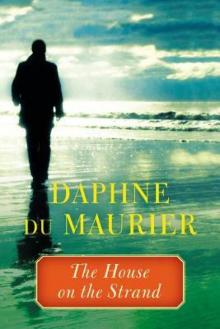 The House on the Strand
The House on the Strand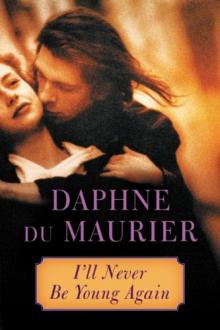 I'll Never Be Young Again
I'll Never Be Young Again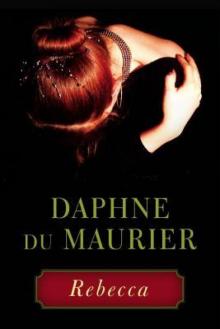 Rebecca
Rebecca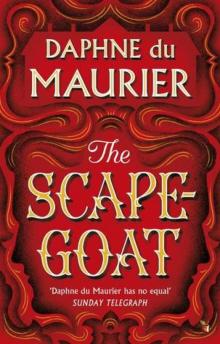 The Scapegoat
The Scapegoat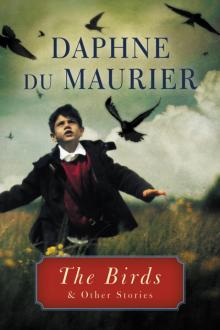 The Birds and Other Stories
The Birds and Other Stories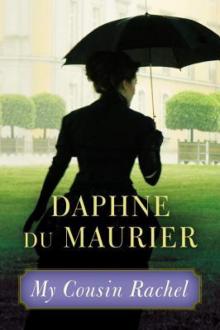 My Cousin Rachel
My Cousin Rachel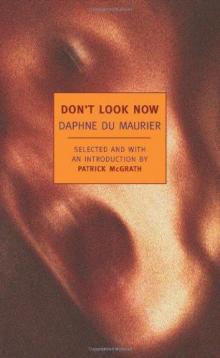 Don't Look Now
Don't Look Now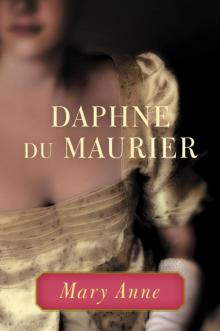 Mary Anne
Mary Anne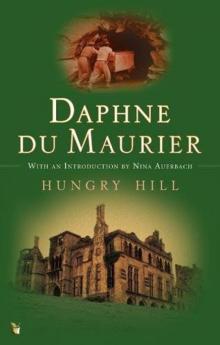 Hungry Hill
Hungry Hill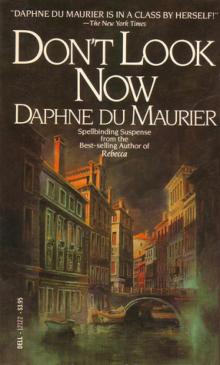 Don't Look Now and Other Stories
Don't Look Now and Other Stories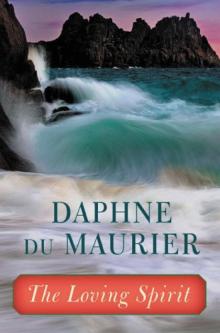 The Loving Spirit
The Loving Spirit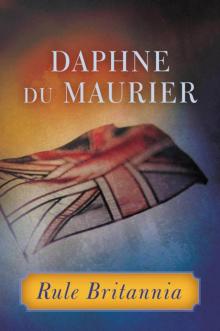 Rule Britannia
Rule Britannia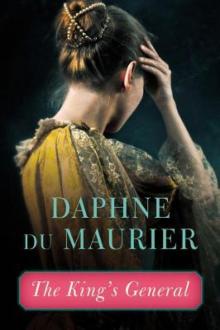 The King's General
The King's General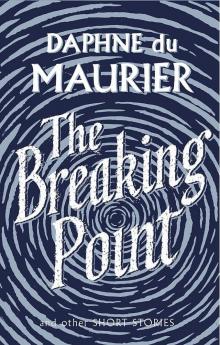 The Breaking Point: Short Stories
The Breaking Point: Short Stories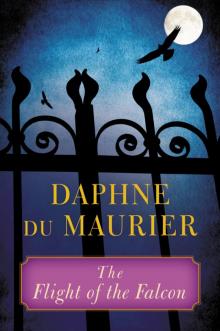 The Flight of the Falcon
The Flight of the Falcon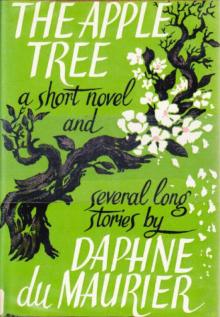 The Apple Tree: a short novel & several long stories
The Apple Tree: a short novel & several long stories The Breaking Point
The Breaking Point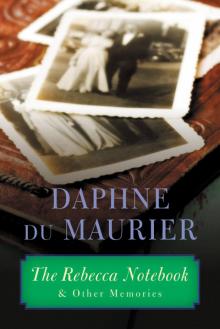 The Rebecca Notebook
The Rebecca Notebook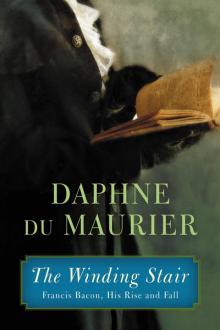 The Winding Stair: Francis Bacon, His Rise and Fall
The Winding Stair: Francis Bacon, His Rise and Fall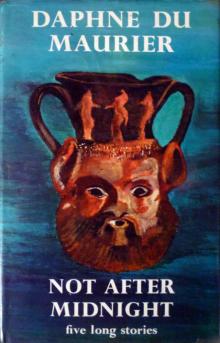 Not After Midnight & Other Stories
Not After Midnight & Other Stories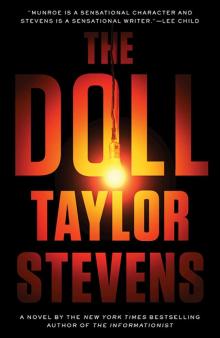 The Doll
The Doll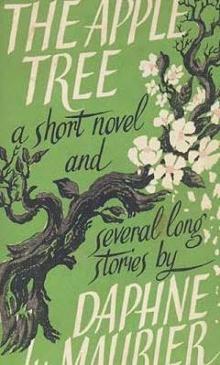 The Apple Tree
The Apple Tree